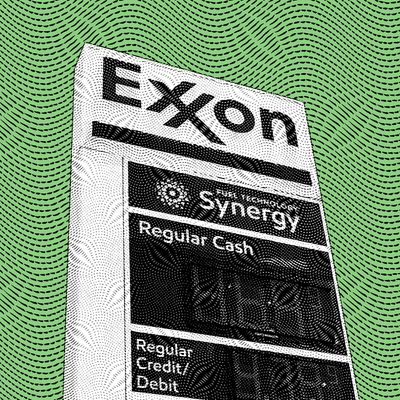
Over the weekend, ExxonMobil — the oil-and-gas giant — announced it would also become one of the country’s largest producers of lithium, the metal used to power electric vehicles. It turns out that Arkansas is something like the Venezuela of lithium, sitting atop a sea of metal-rich brine in an area with the absolutely amazing name of the Smackover Formation. There is so much there that Exxon could feasibly produce enough of the metal to create a million electric vehicle batteries a year.
But wait — why would Exxon want to help make cars that don’t rely on the gas they sell? If this strikes you as weird, think again. Electric vehicles get their energy by plugging into the electrical grid, which is still about two-thirds fossils fuels. In fact, Exxon just bought a natural-gas producer last month on the bet that the makeup of the grid isn’t going to change very much. “As the world looks to transition and find lower sources of affordable energy with lower emissions, fossil fuels oil and gas are going to continue to play a role over time,” Exxon Mobil CEO Darren Woods said in a CNBC interview. “That may diminish with time. The rate of that is, I think, not very clear at this stage. But it will be around for a long time.”
With Exxon getting into the lithium-mining business, it’s likely that more of the energy giants will start to get in on it too. Already the board of Albemarle, the largest U.S. lithium producer, is packed with executives from the petroleum and mining industries. All of which relates to a larger question about how much carbon EVs actually keep out of the atmosphere — and where, without the energy grid radically changing, the emissions coming from vehicles isn’t likely to decrease so much as become less visible at the consumer level. You think you’re making the environment better just because you can’t see anything come out of your tailpipe? Exxon seems ready to take the other side of that bet.






























